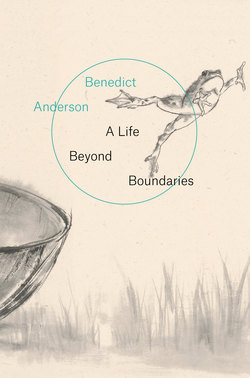Читать книгу A Life Beyond Boundaries - Benedict Anderson - Страница 6
На сайте Литреса книга снята с продажи.
Preface
ОглавлениеThe origin of this book is quite unusual, and I hope may therefore tickle the curiosity of English readers. It began around 2003 when Ms Endo Chiho, a fine editor for Japan’s NTT Publishing Company, happened to read earlier Japanese translations of my works, in particular Imagined Communities. She felt that young Japanese students had little idea of the social, political, cultural and epochal contexts in which Anglo-Saxon scholars were born, educated and matured. Many biographical and autobiographical books were available about ‘Western’ politicians, artists, generals, businessmen and novelists, but few about Western scholars. Her idea was to publish a short book about my education in Ireland and Britain, academic experience in the US, fieldwork in Indonesia, Siam and the Philippines, together with some reflections on Western universities and on my favourite books. But I knew no Japanese. What was to be done? She realized that I would have to be persuaded to write some simple kind of English-language text. But the crux was to find a distinguished Japanese scholar who knew English very well, was a close friend of mine, and was willing to work on a translation.
Kato Tsuyoshi (aka Yoshi) had come to Cornell University in 1967 to study sociology and anthropology. This was the year that I finished my PhD (on the Japanese Occupation of Java during the Second World War and the subsequent Indonesian National Revolution) and became a very junior professor of political science. Because Yoshi was determined to do fieldwork on Indonesia’s western Sumatra I was appointed as one of his three mentors. We quickly became close friends, not least because of his lovely sly sense of humour. He was a fast learner of academic English and of Indonesia’s national language. After completing a very original PhD thesis, he returned to Japan and taught at the Jesuits’ ‘international’ university in Tokyo, later moving to Kyoto University, which was the centre for Japanese scholarship on Southeast Asia, where he became a great teacher. We met there often and became even stronger friends.
He told me that he thought Ms Endo’s general idea a good one, and that he had worked out a useful systematic plan, if only I would accept it. He said that too many Japanese students and teachers had little understanding of scholarship abroad because of their poor knowledge of English, French, Chinese, etc. Professors also adopted a patriarchal attitude towards their students, which made the youngsters needlessly timid.
My first reaction was embarrassed rejection. Professors in the West rarely have interesting lives. Their values are objectivity, solemnity, formality and – at least officially – self-effacement. He replied that I had been educated in Ireland, Britain and America, and my fieldwork covered Indonesia, Siam and the Philippines. Even though I taught in America, my outlook was far from that of many American social scientists. All this would help Japanese students to think in terms of useful comparisons. We would work together, he hoped. I would write a rough manuscript following the guidelines created by Ms Endo and himself, and he would translate what I wrote. He would come to my home for a month to ask me about passages that were difficult to understand, correct any mistakes, give me better paragraphs, and teach me about Japanese education.
Finally I gave in, because Yoshi was one of my best friends, had worked so hard, and was the only Japanese scholar capable of carrying out the plan. I consoled myself by saying silently that at least I would never read the forthcoming book. But in a distant way I would be chatting directly with the Japanese students. The book was published, very elegantly, in 2009, and Ms Endo and Yoshi were pleased.
From the start, my brother had urged me to publish an English-language version, and every time I refused. But by 2015 I changed my mind for various reasons, not least of which was the fact that I would be eighty the following year. The work I had been doing since my retirement in 2009 had little to do with my ‘career’, including a study of brilliant Thai filmmakers, The Decay of Rural Hell in Siam, the role of folklore in the Philippine Revolution, the changing meaning of advertisements, and so on, as well as various translations and a projected biography of a great Sino-Indonesian journalist and historian. None of this had much connection with education in Japan except in regard to the decay of universities in Britain, America, Europe and elsewhere. To say nothing of the miserable condition of the world as a whole.
Then the problems of ‘English’. I would have to take responsibility for all the mistakes, forms of prose, memory lapses, follies and sometimes silly jokes.
This rather wandering book has therefore two main themes. The first is the importance of translation for individuals and societies. The second is the danger of arrogant provincialism, or of forgetting that serious nationalism is tied to internationalism.
